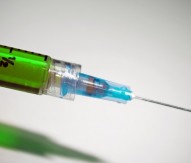
H2020 aims to destabilise pest insects’ hormones
An international consortium of scientists have received funding from Horizon 2020 to develop new, ecofriendly pesticides that will render numerous pest insects less destructive.
The €7m ‘nEUROSTRESSPEP’ project is led by Professor Shireen-A. Davies of the UK’s University of Glasgow. The researchers will study the developments in the hormone systems of selected insect species. The experts are aiming to influence these systems with artificial hormone-like substances. Neuropeptides are a highly adjustable group of hormones that help the brain and tissues communicate with each other. The pests being targeted in this study include moths, locusts, aphids, flies and beetles that damage crops.
Outlining the investigation, Professor Reinhard Predel of the University of Cologne, Germany, one of the fourteen participating organisations, said only specific insects would be affected: “Our goal is to reduce the fitness of the damaging insects to prevent a population explosion. We will be able to specifically target the insect whose population we want to diminish; the relation between natural predator and insect remains unaltered and beneficial insects such as honeybees are no longer harmed.”
Traditionally employed pesticides are poisons that make no difference between damaging and beneficial insects or spiders. Moreover, despite the use of these chemicals individual specimens of the insects generally survive and grow resistant to the pesticide, and their natural predators are often affected much more severely because they exist in significantly fewer numbers.
To develop artificial neuropeptides, the researchers have to identify the natural prototypes. Neuropeptides are thought to be very well suited for this strategy, as species often have unique neuropeptide sequences. Once the scientists have identified these sequences, they can develop structurally similar artificial messenger substances and stabilise them in such a way that the insects cannot break them down quickly.
“We will investigate if the species in question have unique specialised systems,” Predel adds. “In short: we want to use the unique nature of the species as the point of application. If these artificial hormones cannot be broken down, the organism is destabilised. Its water balance, reproduction and nutrition intake are disturbed.”
The project will begin in June and will run for four years.




